INTRODUCTION
Immigration has been a hot-button issue in the UK, sparking intense debate and eliciting strong opinions from political leaders, commentators, and the public. This article delves into various perspectives on Britain’s immigration crisis, highlighting speeches from influential figures to capture the breadth of concerns and proposed solutions.

Nigel Farage: A Call for Control
Nigel Farage, leader of Reform UK, has been a persistent and vocal critic of current immigration levels. He emphasizes the sheer scale of net migration, which he claims stands at three-quarters of a million people annually. Over the past two years, this has resulted in 2.5 million new arrivals, a figure Farage finds alarming. He argues that this influx strains public services, such as the NHS and housing, and poses potential security risks due to inadequate knowledge of new entrants. Farage’s stance is that the massive influx is a threat to national security, echoing concerns about potential infiltration by operatives from extremist groups like ISIS. His solution involves stringent immigration control measures and a significant reduction in numbers to manage the socio-economic impact.
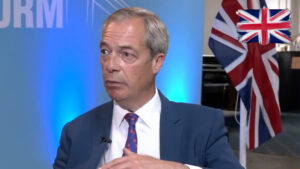
Konstantin Kisin: A Democratic Deficit
Konstantin Kisin, co-host of the political commentary show Triggernometry, highlights the democratic aspect of the immigration debate. He points out that the British public has repeatedly voted for lower immigration, yet the current levels far exceed these preferences. Kisin criticizes the lack of public consent and describes the situation as anti-democratic and immoral, stressing that the will of the people has been ignored for decades. He underscores that this disconnect between public opinion and government policy undermines trust in democratic institutions, calling for immigration policies that reflect the electorate’s wishes.
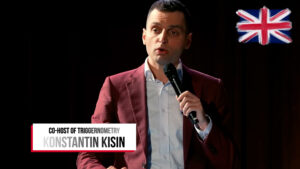
Rishi Sunak: Implementing Deterrence
Prime Minister Rishi Sunak acknowledges that immigration is too high and outlines his government’s actions to address the issue. Sunak mentions measures such as detaining migrants, using airfields, and standby planes, and organizing regular deportation flights. These actions are intended to establish a deterrent against illegal immigration. He emphasizes the importance of securing borders and maintaining operational security in executing these plans. Sunak’s pragmatic approach focuses on immediate and tangible actions to reduce the influx and signal a tougher stance on immigration.
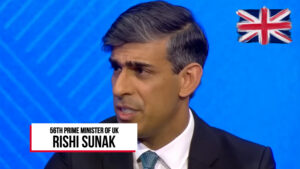
James Cleverly: Prioritizing Border Security
James Cleverly, the UK’s Secretary of State, reinforces the government’s stance on border security. He asserts that if there is a conflict between securing borders and following foreign court instructions, the UK will prioritize its borders. Cleverly highlights the legislative steps taken to ensure civil servants can implement these policies effectively, underscoring the government’s commitment to border security. He draws on historical context, reminding us that the UK has a legacy of shaping modern Europe post-WWII, yet now must assert its sovereignty to manage immigration effectively.
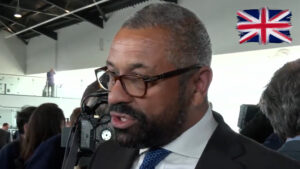
Ann Widdecombe: Criticizing Inaction
Former MEP Ann Widdecombe criticizes the slow progress of the Rwanda plan, aimed at deterring illegal immigration. She laments the lack of a Plan B, which she believes has allowed thousands of illegal immigrants to continue arriving. Widdecombe calls for more decisive action and alternative strategies to manage the immigration crisis effectively. Her frustration is palpable as she challenges the government’s apparent fixation on a single plan that has yet to yield results, urging for a broader, more flexible approach to tackling illegal immigration.
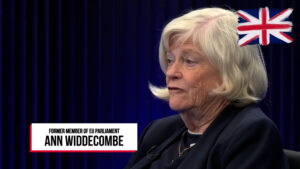
Matthew Goodwin: Exposing the Scale
British academic Matthew Goodwin warns about the unprecedented scale of current immigration. He argues that the country is experiencing mass immigration without popular consent, leading to significant demographic changes. Goodwin predicts that the UK will need several new cities to accommodate future population growth, driven primarily by immigration. He presents a stark picture of future challenges, suggesting that current immigration levels will fundamentally alter the social and economic fabric of the nation, necessitating extensive urban development and planning.
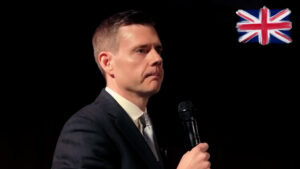
Suella Braverman: Enforcing New Rules
Former Home Secretary Suella Braverman stresses the importance of reducing immigration, particularly targeting overseas students bringing dependents. She asserts that the government will take whatever steps necessary to stop illegal immigration, criticizing international rules and the Human Rights Act as outdated and misapplied. Braverman’s stance is robust, emphasizing legal reforms and stringent enforcement to deter what she terms “bogus asylum seekers” and prevent the misuse of student visas as a backdoor for family migration.
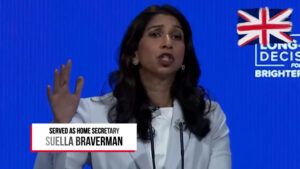
Lee Anderson: Advocating for British Workers
Lee Anderson, a UK Reform politician, advocates for prioritizing British workers, especially the youth. He criticizes businesses for relying on cheap foreign labour and urges them to hire locally. Anderson believes this approach will foster economic growth and create a fairer society. He focuses on creating job opportunities for young Britons and reducing the dependency on immigrant labour, which he argues can depress wages and limit employment prospects for local workers.

Conclusion
The immigration debate in Britain is multifaceted, with arguments ranging from national security and economic impact to democratic principles and societal cohesion. The voices from the frontline reflect a deep-seated concern about the current trajectory and a call for more stringent and effective immigration policies. As the debate continues, it remains a pivotal issue influencing political discourse and public sentiment in the UK. Each perspective adds to the complex mosaic of opinions on how best to manage immigration in a way that safeguards the nation’s interests and respects the democratic will of its people.

For a deeper understanding and to hear these perspectives firsthand, watch the video linked below. Your engagement helps us bring more content to light. Stay informed and join the conversation.
[Watch the video here]: https://youtu.be/JTUfSC38rWE
